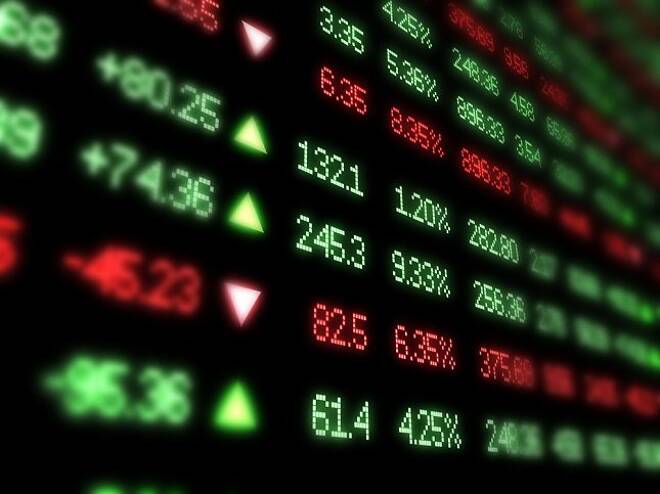Advertisement
Advertisement
European Stocks Edged Higher as Inflation Steadies
By:
European stock markets are mostly higher. The FTSE 100 outperforms with a 0.62% gain, after today's data mix saw Sterling retreating. In the Eurozone the
European stock markets are mostly higher. The FTSE 100 outperforms with a 0.62% gain, after today’s data mix saw Sterling retreating. In the Eurozone the DAX is up 0.23%, while the Spanish IBEX once again underperformed and is down -0.35% amid the ongoing tensions over Catalonia’s bid for independence. The Euro Stoxx 50 is up a mere 0.08% and overall investors are ending the quarter on a somewhat cautious note. In Asia, markets outside of Japan moved higher as the dollar strengthened, while the Nikkei closed with a marginal loss of -0.03%. U.S. tax plans remain in focus and U.S. stock futures are narrowly mixed.
Oil prices are near net unchanged today, with the front-month future of the WTI benchmark presently showing a fractional gain. A five-and-a-half-month high was logged yesterday before a correction took hold, producing a closing level at $52.23. At prevailing level, WTI oil prices are up 12.5% on the month, though remain down by 3.9% on the year-to-date. The Brent benchmark has seen its biggest Q3 price gain in 13 years. A broad pickup in global demand, along with the OPEC-led supply curtailment, have helped right the imbalance that was dogging crude markets in recent years. A potential supply disruption of Kurdish oil to Turkey has been in the mix this week.
Eurozone Inflation Held Steady
Eurozone September HICP inflation held steady at 1.5% year over year, unchanged from August. Initial expectations had been for a slight uptick in the headline rate, but after Thursday’s Spanish and German numbers, it was pretty clear that headline rates remained steady. The preliminary breakdown showed energy price inflation actually falling back slightly to a still high 3.9% year over year from 4.0% year over year. Services price inflation also eased slightly – to 1.5% year over year, while prices for industrial goods continue to rise at a very low pace of just 0.5% year over year, which helps to keep the headline rate down. Only food price inflation accelerated. Core inflation actually fell back to 1.1% year over year from 1.2% year over year, which will add to the arguments of the doves at the ECB who seem to want to cut monthly asset purchase levels next year, but without a firm commitment to a final end date for QE.
German seasonally adjusted unemployment numbers dropped -23K, more than anticipated and bringing the overall rate down to a record low of 5.6%. A better than expected result that ties with reports from PMI surveys and shows that job creation continues. Wage growth in Germany has been above the Eurozone average, but for the Eurozone it has been surprisingly low considering the rebound in employment since the crisis. This is partly due to structural changes and the reforms implemented since then, which means the jobless number itself won’t spook the ECB into a more decisive reduction in monetary accommodation.
About the Author
David Beckerauthor
David Becker focuses his attention on various consulting and portfolio management activities at Fortuity LLC, where he currently provides oversight for a multimillion-dollar portfolio consisting of commodities, debt, equities, real estate, and more.
Advertisement
